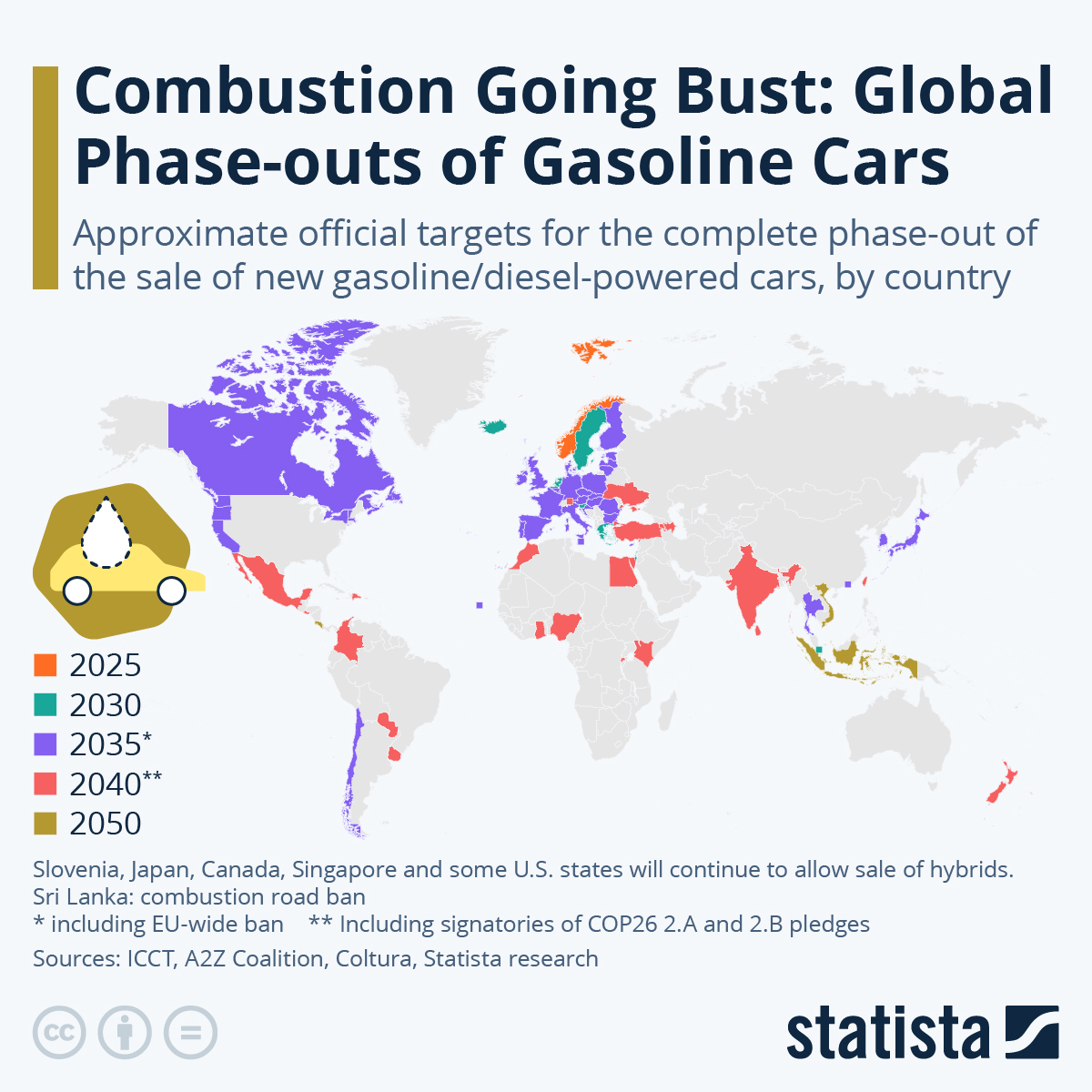Author: Tyler Durden
Source
The European Union last week approved a law that will ban the sale of combustion engine cars in its member states from 2035.
For Germany and Italy as well as for Romania, Bulgaria, the Czech Republic and Hungary, the new bill sets a first deadline for the sale of gasoline-powered cars.
However, as Statista’s Katharina Buchholz reports, the current governments of the former two countries, however, have already spoken out against the ban – calling into question the timeline of the phase-out that climate scientists call absolutely necessary, but that could also face delays.
You will find more infographics at Statista
Other European Union countries had already embraced the phase-out of gasoline cars: The Netherlands, Belgium’s Flanders region, Sweden, Greece and Slovenia are all looking to end the sale of gas-powered cars even earlier, between 2029 and 2030.
The only country in the world beating this is Norway, an electric mobility pioneer from outside of the European Union, where around 80 percent of new cars sold are already fully electric and 100 percent are scheduled to be in 2025.
Similarly, voluntarily formed blocks of uniform vehicle standards could be dissolved in the U.S. over the issue of combustion engine cars.
California in August set a phase-out date for new sales of these vehicles, also for 2035, and while 17 states had previously tied their vehicle standards to California’s under the Federal Clean Air Act, several now want out. The states going along with California’s decision (or expected to do so shortly) are Washington, Oregon, Connecticut, Massachusetts, New York, Vermont and Delaware— – fewer than half of California’s former allies.
While hybrids were initially expected to be phased out as well in California, some advanced hybrids with large battery power will now be allowed. Other nations treating hybrids favorably in their phase-outs are Canada, Slovenia, Singapore and Japan,but most nations want them gone also by the time their ban date comes up.
Sri Lanka, on the other hand, has been setting the toughest goals of any country, issuing not just a phase-out of new gasoline car sales, but a full road ban for combustion engine cars, tuk-tuks and motorcycles by 2040. But the country has also attracted international attention in the recent past for issuing sweeping legislation whose implementation proved problematic. For some smaller countries without their own carmakers or their subsidiaries, a gas car phase-out can actually be easier to implement in some ways. Cape Verde, which along with many other nations around the globe signed the COP26 declaration to ban the sale of new combustion engine cars by 2040, internally set the goal to achieve this feat even earlier, by 2035. To do so, it would merely have to ban the import of gas-powered cars by that date.
Tyler Durden
Thu, 02/23/2023 – 05:45
